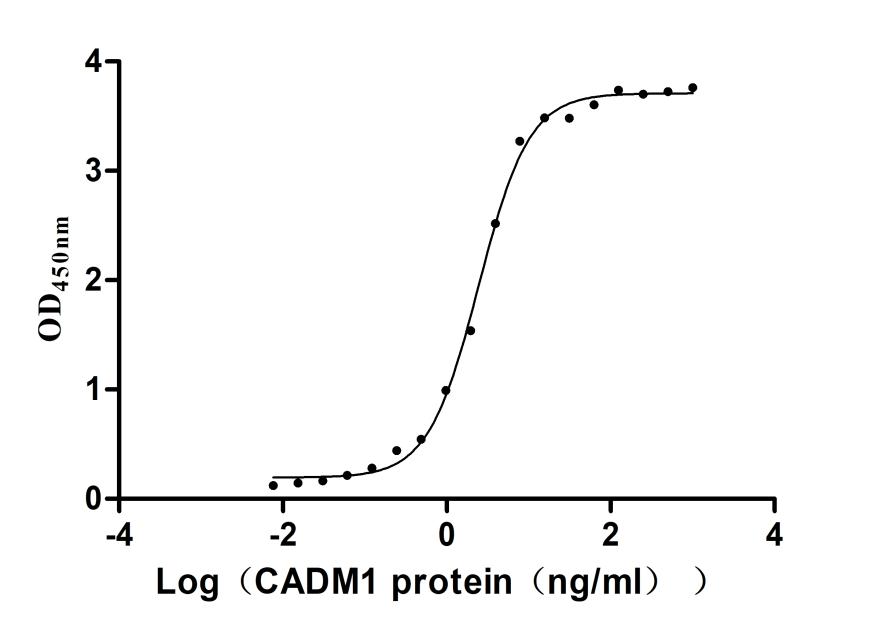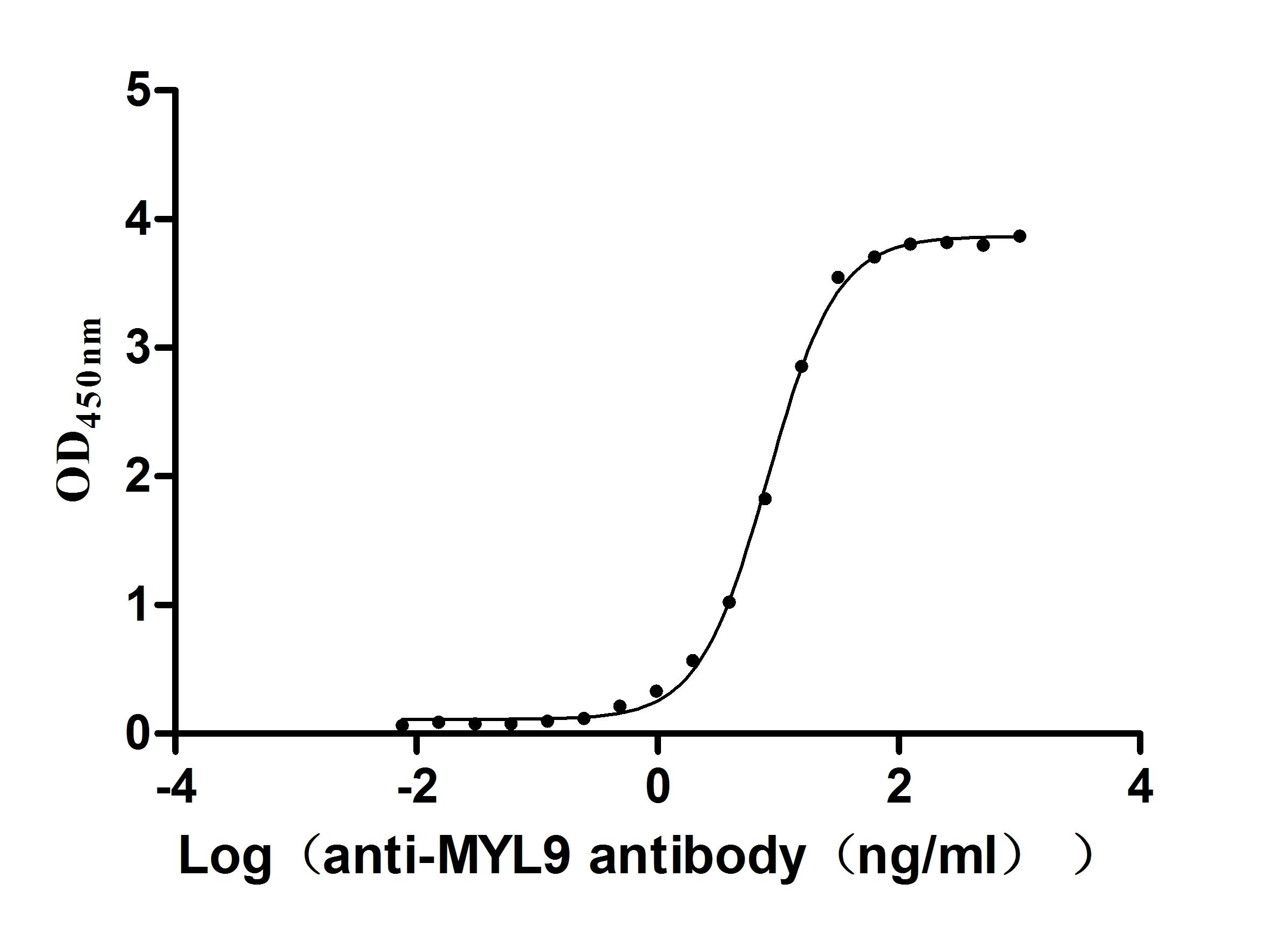Recombinant Human Glutathione S-transferase omega-1 (GSTO1)
-
货号:CSB-YP009986HU
-
规格:
-
来源:Yeast
-
其他:
-
货号:CSB-EP009986HU
-
规格:
-
来源:E.coli
-
其他:
-
货号:CSB-EP009986HU-B
-
规格:
-
来源:E.coli
-
共轭:Avi-tag Biotinylated
E. coli biotin ligase (BirA) is highly specific in covalently attaching biotin to the 15 amino acid AviTag peptide. This recombinant protein was biotinylated in vivo by AviTag-BirA technology, which method is BriA catalyzes amide linkage between the biotin and the specific lysine of the AviTag.
-
其他:
-
货号:CSB-BP009986HU
-
规格:
-
来源:Baculovirus
-
其他:
-
货号:CSB-MP009986HU
-
规格:
-
来源:Mammalian cell
-
其他:
产品详情
-
纯度:>85% (SDS-PAGE)
-
基因名:GSTO1
-
Uniprot No.:
-
别名:AA407097; AI194287; AU018802; DKFZp686H13163; EC 2.5.1.18; Glutathione S transferase omega 1; Glutathione S-transferase omega 1-1; Glutathione S-transferase omega; Glutathione S-transferase omega-1; Glutathione transferase omega 1; Glutathione-dependent dehydroascorbate reductase; Glutathione-S-transferase like ; Glutathione-S-transferase omega 1; GSTO 1-1; GSTO-1; GSTO1 1; Gsto1; GSTO1_HUMAN; GSTTLp28; GSTX; Gtsttl; MGC94845; MMA(V) reductase; Monomethylarsonic acid reductase; OTTHUMP00000020429 ; p28; S-(Phenacyl)glutathione reductase; SPG-R
-
种属:Homo sapiens (Human)
-
蛋白长度:Full Length of Mature Protein
-
表达区域:2-241
-
氨基酸序列SGESARSLG KGSAPPGPVP EGSIRIYSMR FCPFAERTRL VLKAKGIRHE VININLKNKP EWFFKKNPFG LVPVLENSQG QLIYESAITC EYLDEAYPGK KLLPDDPYEK ACQKMILELF SKVPSLVGSF IRSQNKEDYA GLKEEFRKEF TKLEEVLTNK KTTFFGGNSI SMIDYLIWPW FERLEAMKLN ECVDHTPKLK LWMAAMKEDP TVSALLTSEK DWQGFLELYL QNSPEACDYG L
-
蛋白标签:Tag type will be determined during the manufacturing process.
The tag type will be determined during production process. If you have specified tag type, please tell us and we will develop the specified tag preferentially. -
产品提供形式:Lyophilized powder
Note: We will preferentially ship the format that we have in stock, however, if you have any special requirement for the format, please remark your requirement when placing the order, we will prepare according to your demand. -
复溶:We recommend that this vial be briefly centrifuged prior to opening to bring the contents to the bottom. Please reconstitute protein in deionized sterile water to a concentration of 0.1-1.0 mg/mL.We recommend to add 5-50% of glycerol (final concentration) and aliquot for long-term storage at -20℃/-80℃. Our default final concentration of glycerol is 50%. Customers could use it as reference.
-
储存条件:Store at -20°C/-80°C upon receipt, aliquoting is necessary for mutiple use. Avoid repeated freeze-thaw cycles.
-
保质期:The shelf life is related to many factors, storage state, buffer ingredients, storage temperature and the stability of the protein itself.
Generally, the shelf life of liquid form is 6 months at -20°C/-80°C. The shelf life of lyophilized form is 12 months at -20°C/-80°C. -
货期:Delivery time may differ from different purchasing way or location, please kindly consult your local distributors for specific delivery time.Note: All of our proteins are default shipped with normal blue ice packs, if you request to ship with dry ice, please communicate with us in advance and extra fees will be charged.
-
注意事项:Repeated freezing and thawing is not recommended. Store working aliquots at 4°C for up to one week.
-
Datasheet :Please contact us to get it.
相关产品
靶点详情
-
功能:Exhibits glutathione-dependent thiol transferase and dehydroascorbate reductase activities. Has S-(phenacyl)glutathione reductase activity. Has also glutathione S-transferase activity. Participates in the biotransformation of inorganic arsenic and reduces monomethylarsonic acid (MMA) and dimethylarsonic acid.
-
基因功能参考文献:
- the effect of specific GSTO1 and GSTO2 gene variants, independently and in interaction with established risk factors (smoking, obesity and hypertension) on the risk for the most aggressive renal cell carcinoma (RCC) subtype, the clear cell RCC, is reported. PMID: 30224590
- Results showed that the variants rs11191979, rs2164624 and rs4925 of GSTO1 provide the susceptibility toward developing arsenic-induced skin lesions in individuals exposed to high-dose inorganic arsenic in northwest China. PMID: 29323258
- Significant correlation between severities of skin manifestations with GSTO1 polymorphism status in arsenic-exposed population of India. PMID: 28436716
- GSTO1*C is linked to the pre-stage of Alzheimer's disease; rs4925 could be a genetic marker for cognitive impairment PMID: 27259244
- This study demonstrated that Distribution of the GSTO1 alleles and genotypes was nearly equal between the control group and SCA2 patients. GSTO1 genotypes were not associated to clinical markers in SCA2 patients. PMID: 28017238
- GSTO1 genetic polymorphisms are associated with the progression of HBV infection. PMID: 27221910
- GSTP1 and GSTO1 polymorphisms are associated with epirubicin treatment outcomes as well as with epirubicin-related toxicity. PMID: 26354850
- No significant association has been found between childhood Pre-B acute lymphoblastic leukemia and GSTO1 A140D and GSTO2 N142D polymorphisms. PMID: 25726706
- The present study provided epidemiological evidence for a significantly increased risk of UCB in ever smokers with the Ala/Ala genotype of the GSTO1 gene and the Arg/Arg genotype of the SULT1A1 gene. PMID: 25103078
- Our results indicate that GSTO1*C/GSTO2*G haplotype is associated with increased risk of TCC. The modifying effect of GSTO2*G/G genotype on individual susceptibility to TCC is more pronounced, when associated with smoking. PMID: 25716313
- This meta-analysis demonstrates that GSTO2 polymorphism may significantly increase cancer risk in Caucasian population and is associated with elevated risk of breast cancer; while GSTO1 polymorphism is not associated with cancer risk. PMID: 25300926
- Our study is the first to show that the frequency of GSTO1 A140D gene polymorphism in the Turkish population is similar to other Caucasian populations and that this polymorphism is not associated with susceptibility to NSCLC. PMID: 23819933
- Overexpression of GSTO1 is associated with esophageal squamous cell carcinoma. PMID: 25085586
- GSTT1 active genotype and GSTO1 Asp140Asp and GSTO2 Asp142Asp genotypes may have a prognostic/pharmacogenomic role in patients with muscle invasive bladder cancer. PMID: 24040330
- Genetic variants in GSTO1 are associated with increased risk for recurrent miscarriage. PMID: 24417908
- The common A140D genetic polymorphism in GSTO1 was found to have significant effects on the kinetics of both the deglutathionylation and glutathionylation reactions. PMID: 23888047
- The frequencies of GSTO1 and GSTO2 genotypes were not significantly different between head and neck squamous cell carcinoma cases and controls. PMID: 23086268
- Single nucleotide polymorphisms (SNPs) in arsenic methyltransferase and methylene-tetrahydrofolate reductase is associated with bladder cancer in those exposed to low concentrations of inorganic arsenic. SNPs in glutathione S-transferase omega-1 are not. PMID: 22747749
- GSTO-1 plays a key role in hormesis induced by low dose trichloroethylene. PMID: 21351650
- Our studies confirm the lack of association between GSTO1 variants and essential hypertension risk, also for two uncommon genetic variants with large functional effects in italian patients. PMID: 22283150
- Results suggest a role of GSTO1-1 in the inflammatory response and the apoptotic process and indicate that A140D and E208K polymorphisms could increase risk of developing inflammatory and apoptosis-related diseases in As-exposed populations. PMID: 22293942
- low monomethylarsonic acid is associated with increased risk for MetS among As-exposed subjects and the genetic polymorphism of GSTO1 PMID: 22440634
- The minor allele of GSTO1 rs4925 associates with decreased risk in familial Parkinson disease. The minor alleles of GSTO1 rs4925 and GSTO2 rs156697 SNPs associate with lower brain levels of GSTO2, but not GSTO1. PMID: 22494505
- the crystal structure of a human GSTO1-1 has been determined at 1.7 A resolution in complex with the reaction product ascorbic acid PMID: 22522127
- Genetic polymorphisms GSTO and As3MT modify arsenic metabolism as evidenced by altered urinary arsenic excretion PMID: 22339537
- we hypothesized that GSTO1*E155del is an uncommon genetic variant associated with Alzheimer's Disease risk. PMID: 22100662
- These findings supported a role of the GSTO1 rs4925 single nucleotide polymorphism in the risk of sporadic Alzheimer disease in southern Italy. PMID: 20818931
- Novel folding and stability defects cause a deficiency of human glutathione transferase omega 1. PMID: 21106529
- Has a role in the risk Urothelial carcinogenesis PMID: 21094982
- the distribution of the GSTO2 gene differed significantly between asthmatics and controls PMID: 20374258
- This study provides the allele frequencies of GSTO polymorphism in a sample consisting of 116 apparently healthy individuals of both sexes from Rome (Central Italy). PMID: 20113212
- it is unlikely that glutathione S-transferases GSTA2, GSTM2, GSTO1, GSTO2, and GSTZ1 participate in breast cancer susceptibility. PMID: 19859803
- GSTO1-1 overexpression appears to be associated with activation of survival pathways (Akt and ERK1/2) and inhibition of apoptotic pathways (JNK1), as well as protection against cisplatin-induced apoptosis. PMID: 20106899
- The GSTO1-140Asp/GSTO2-142Asp haplotype was associated with increased risk of COPD. PMID: 19513904
- polymorphisms in GSTO1 or GSTO2 do not appear to contribute to the large individual variability in arsenic metabolism or susceptibility to arsenicosis. PMID: 19635583
- Data describe the functional characterization of two variants of human glutathione-s-transferase omega. PMID: 12565892
- Arsenic metabolism associated hGSTO1-1 in the European ancestry group was more polymorphic than the Indigenous American Ancestry groups. Mexican Hispanics, could vary in the extent of polymorphism in these genes based upon the admixture. PMID: 12928150
- a significant association was found for GSTO1 (P=0.007) and a second transcribed member of the GST omega class, GSTO2 (P=0.005), located next to GSTO1. PMID: 14570706
- Our results do not confirm an association between PD and frequency of hGSTO2*N142D. PMID: 15159516
- 2 missense polymorphisms in exon 4 (Ala140Asp & Glu155DeltaGlu) were detected. Asp allele genotype affected CSF cholesterol, serum homocysteine. risk of vascular dementia, stroke, and early-onset Alzheimer's disease. PMID: 15623683
- no association either with age-at-onset in AD cases or with disease risk in the case-control cohort but haplotype analysis revealed a modest association of one haplotype with AD risk (p = 0.04 PMID: 15917099
- For E155del, the mutation frequency in Ovambo and Japanese subjects was 0.000 and 0.017, respectively, similar to those for other populations. As for E208K polymorphism, no mutation allele was found in Ovambo or Japanese subjects. PMID: 17484623
- Glutathione S-transferase omega is abundant in alveolar macrophages and airway secretions, with the levels decreased in patients with chronic obstructive pulmonary disease. PMID: 17617905
- The GSTO1 Asp/Asp genotype presumably modulates the severity and expansion of atherosclerosis in the circle of Willis PMID: 17717316
- The prevalence of the GSTO1 140A varied significantly among different regional populations in China, which showed that geography played a more important role in the population differentiation for this allele than the ethnicity/race PMID: 18400112
- Polymorphisms of glutathione S-transferase A1 and O1 and breast cancer among postmenopausal Danish women. PMID: 18414193
- These results suggest a possible effect of the GSTO1 and 2 locus on age of onset of FALS. PMID: 18427999
- These data establish the fact that the polymorphic deletion of Glu155 can cause GSTO1-1 deficiency in vivo. PMID: 18571971
- GSTO2*N142D genotype is significantly associated with high rish of childhood acute lymhpoblastic leukemia. PMID: 18941778
- Report GSTO1 gene polymorphisms in worldwide populations. PMID: 18986335
显示更多
收起更多
-
亚细胞定位:Cytoplasm, cytosol.
-
蛋白家族:GST superfamily, Omega family
-
组织特异性:Ubiquitous. Highest expression in liver, pancreas, skeletal muscle, spleen, thymus, colon, blood leukocyte and heart. Lowest expression in brain, placenta and lung.
-
数据库链接:
HGNC: 13312
OMIM: 605482
KEGG: hsa:9446
STRING: 9606.ENSP00000358727
UniGene: Hs.190028
Most popular with customers
-
Recombinant Human Leukocyte surface antigen CD47 (CD47), partial (Active)
Express system: Mammalian cell
Species: Homo sapiens (Human)
-
Recombinant Human Neuropilin-1 (NRP1) (Active)
Express system: Mammalian cell
Species: Homo sapiens (Human)
-
Recombinant Human Nectin-4 (NECTIN4), partial (Active)
Express system: Mammalian cell
Species: Homo sapiens (Human)
-
Recombinant Human HLA class II histocompatibility antigen gamma chain (CD74), partial (Active)
Express system: Mammalian cell
Species: Homo sapiens (Human)
-
Recombinant Human Desmoglein-3 (DSG3), partial (Active)
Express system: Baculovirus
Species: Homo sapiens (Human)
-
Recombinant Human Cytotoxic and regulatory T-cell molecule (CRTAM), partial (Active)
Express system: Mammalian cell
Species: Homo sapiens (Human)
-
Recombinant Human Myosin regulatory light chain 12B(MYL12B) (Active)
Express system: E.coli
Species: Homo sapiens (Human)
-
Recombinant Human Dipeptidase 3(DPEP3), partial (Active)
Express system: Mammalian cell
Species: Homo sapiens (Human)


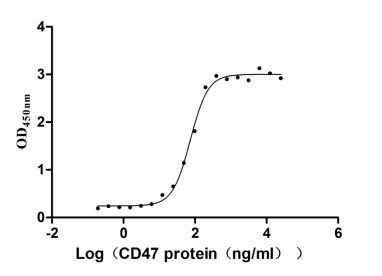
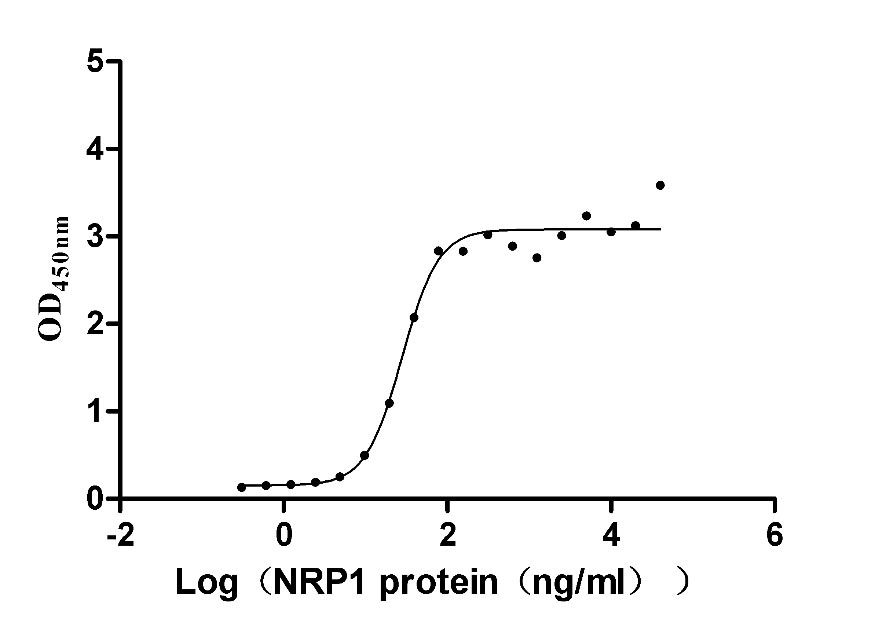
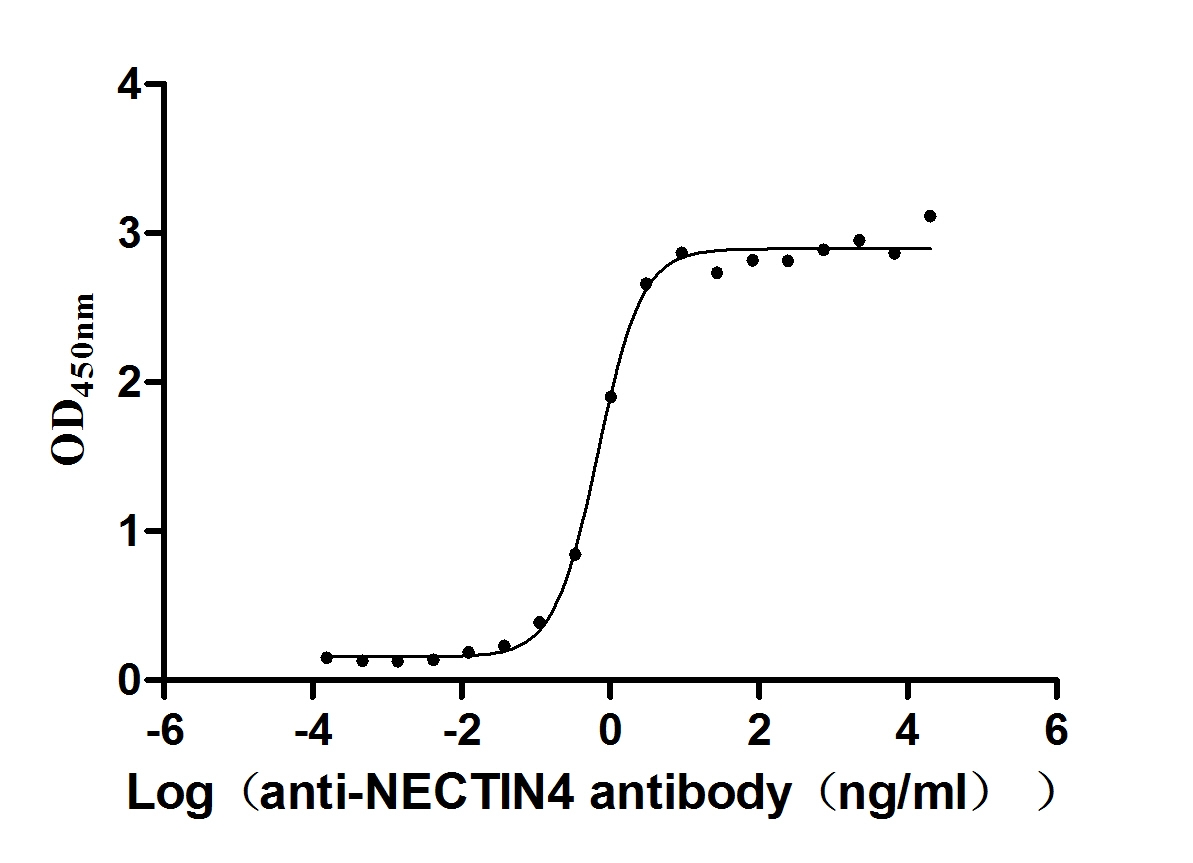
-AC1.jpg)

